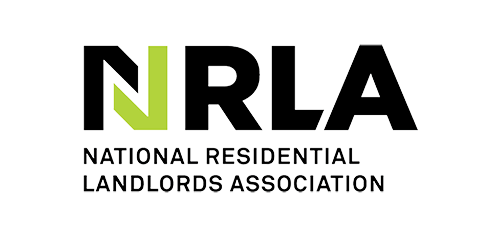Property investment in the UK is a proven way to build wealth, but financing can be a complex process. Whether you’re a first-time investor or looking to expand your portfolio, understanding the various financing options available is crucial. This guide explores the most common methods for financing property investments in the UK, helping you determine which best suits your goals.
1. Traditional Buy-to-Let Mortgages
Buy-to-let (BTL) mortgages are a popular way to finance rental property investments in the UK.
- Interest-Only Mortgages: These are common for BTL investors, as they allow you to pay only the interest each month, with the loan principal due at the end of the term. This can maximise cash flow from rental income.
- Repayment Mortgages: Alternatively, you can opt for a repayment mortgage, where you pay both interest and a portion of the principal each month. This reduces the loan amount over time.
Pros:
- Tailored for rental properties.
- Potential for higher cash flow with interest-only options.
Cons:
- Typically require a larger deposit (usually 25% or more).
- Stricter affordability checks.
Best For: Investors focused on rental income with a solid understanding of the rental market.
2. Bridging Loans
Bridging loans are short-term loans designed to ‘bridge’ a gap, such as purchasing a new property before selling an existing one.
- Speed: These loans are often processed quickly, making them ideal for securing property in time-sensitive situations, such as auctions or distressed sales.
- Exit Strategy: A clear exit strategy (e.g., selling another property or securing long-term finance) is required, as bridging loans typically need to be repaid within 12-24 months.
Pros:
- Quick access to funds.
- Useful for property developers and investors needing to act fast.
Cons:
- High interest rates and fees.
- Short repayment terms.
Best For: Investors needing quick financing, especially in competitive situations like auctions.
3. Personal Loans
Personal loans can be an option for financing smaller property investments or deposits.
- Unsecured: Unlike mortgages, personal loans are usually unsecured, meaning they don’t require collateral, such as your home.
- Flexibility: These loans can be used for various investment-related expenses, including refurbishments or deposits.
Pros:
- Quick approval process.
- No need for collateral.
Cons:
- Higher interest rates compared to secured loans.
- Smaller borrowing limits, typically up to £25,000.
Best For: Investors needing smaller amounts of capital or who prefer unsecured borrowing.
4. Home Equity Release (Equity Release Mortgages)
Equity release allows older homeowners (usually 55+) to access the equity tied up in their property.
- Lifetime Mortgage: The most common form of equity release in the UK, where you borrow money against your home while retaining ownership. The loan is repaid when the property is sold, either when you die or move into long-term care.
- Drawdown Lifetime Mortgage: Allows you to access funds as needed, rather than a lump sum, reducing the interest accrued.
Pros:
- No need to sell your property.
- Flexible access to funds.
Cons:
- Interest can compound quickly, reducing the inheritance value.
- Typically available only to older homeowners.
Best For: Older investors looking to release cash from their property without selling it.
5. Joint Ventures and Partnerships
Joint ventures (JVs) and partnerships involve pooling resources with other investors to finance property investments.
- Shared Risk and Reward: This approach allows you to share both the financial burden and profits of an investment.
- Specialised Roles: Often, one partner might provide the capital, while the other manages the project or brings in specialised knowledge.
Pros:
- Access to larger investments.
- Shared responsibility and risk.
Cons:
- Potential for conflicts over decisions.
- Profits must be shared.
Best For: Investors looking to spread risk or who need additional expertise or capital.
6. Crowdfunding Platforms
Real estate crowdfunding allows multiple investors to pool funds for property investments.
- Online Platforms: UK-based platforms like Property Partner or Bricklane offer access to residential and commercial property investments with relatively low capital requirements.
- Diverse Opportunities: Investors can spread their investments across multiple properties or projects, reducing risk.
Pros:
- Lower capital requirements.
- Access to a diversified property portfolio.
Cons:
- Less control over the investment.
- Potential for lower liquidity compared to direct property ownership.
Best For: Investors seeking a hands-off approach with lower capital outlay.
7. Private Investors
Private investors, including family, friends, or other individuals, can provide financing for property investments.
- Flexible Terms: Loans from private investors can be negotiated with terms that are often more flexible than those from traditional lenders.
- Speed: These agreements can often be arranged quickly, making them suitable for time-sensitive investments.
Pros:
- Flexible and negotiable terms.
- Potentially quicker access to funds.
Cons:
- Risk of damaging personal relationships.
- Lack of regulatory protection.
Best For: Investors with strong personal networks or those needing flexible and quick financing solutions.
8. Development Finance
Development finance is specialised funding for property development projects.
- Staged Drawdowns: Funds are usually released in stages as the project progresses, with payments linked to milestones, such as completion of certain construction phases.
- Exit Strategy: Like bridging loans, development finance requires a clear exit strategy, often through the sale or refinancing of the completed development.
Pros:
- Tailored for large-scale development projects.
- Staged funding reduces interest costs.
Cons:
- High interest rates and fees.
- Requires significant project management expertise.
Best For: Experienced developers or investors undertaking major renovation or construction projects.
Conclusion
Financing your property investment in the UK requires careful consideration of your financial situation, investment goals, and risk appetite. From traditional buy-to-let mortgages to more creative options like crowdfunding and joint ventures, there are various ways to secure the necessary funds. The key is to choose the right financing method that aligns with your investment strategy and helps maximise your returns.
If you’re unsure which option is best for you, consulting with a financial advisor or mortgage broker who specialises in property investment can provide valuable guidance.





